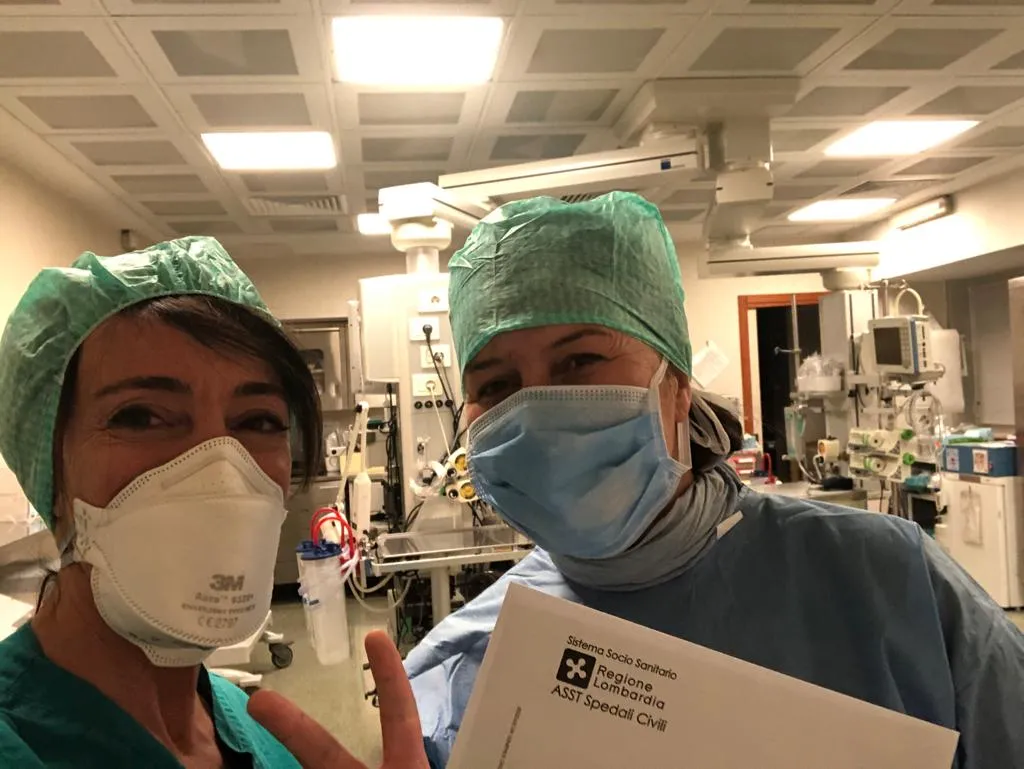
Coronavirus Is not Only a Medical Emergency
"If only I had my EMMAS classmates with me..." Michela Bezzi, Director of the Pneumology Department at ASST Spedali Civili in Brescia and graduate from the SDA Bocconi Executive Master in Management of Health and Social Care Organizations, started our long chat about the health situation at her facility with this comment. She has a specific reason for saying this: "COVID has been above all a management challenge," explains the doctor and manager.
How is the situation today where you're working?
Much better. We went from having up to 1,200 COVID positive patients every day to 267 today. We had two peaks, on 14 and 21 March, also in terms of fatalities. To date, the total of the latter has been around 400.
Have you had to change your intervention strategies at the hospital?
The question should be flipped: is there anything that has remained the same as before? Everything was completely turned upside down. The initial approach was to hospitalize COVID patients in the infectious diseases department, increasing spots from 64 to 84. When infectious diseases could no longer hold them, a part of pulmonology was first converted and then, starting on the night of March 2, a new department of about thirty beds was opened every night and parts of other areas were converted. In the end we had 13 new wards with about 430 beds allocated to COVID patients (ordinary/non-intensive hospitalizations) in the central unit only. In addition, another 400 beds were set up in the other two units of the group. The number of intensive care spots (which is only in the central unit), however, almost tripled: the usual 30 spots were increased to 84.
You have also activated a preventive first aid screening system
This was a very positive factor. Right from the start, we activated a process that included triage at the car or ambulance for people arriving at the emergency room: in doing so, right from check in, there was a distinction between a 'clean' route (patients with pathologies not related to COVID) and a route for patients who had symptoms compatible with COVID.
But what characteristics do COVID patients have today? Has anything changed in the past month?
In the initial phase, we had comorbid elderly patients (with several previous coexisting pathologies) and 'fragile' patients (including young people). After the first two weeks, the average age of the patients decreased and some also did not have associated pathologies. There has always been a clear prevalence of men over women, however.
In a pandemic, the circulation of information becomes fundamental. Has there been collaboration between hospitals over recent weeks?
There was great collaboration within the company, with a total removal of the 'barriers' between the various departments. Expertise and skills joined together to collaborate. And a very close relationship was established with the two other group managers, as well as strong collaboration between public and private facilities. And also between various hospitals and doctors in the area. You have been trained as both a doctor and a manager.
Why EMMAS?
I chose the program because I had become a head physician in Florence at the age of 39 and I felt I needed to acquire managerial skills in addition to medical skills. The moment you find yourself coordinating several people you need specific skills. I had started my training in Pisa with a course for directors of complex structures, I continued it with EMMAS and I concluded it with a course for Directors of Healthcare Companies in the Lombardy Region. Of these courses, the Master was the most thorough.
You began by referring to your 'team' of classmates in the Master. Did you contact each other during this emergency?
Luisa Spadari, my classmate in EMMAS, has been with me since day one. Luisa is not a doctor, she generally works reorganizing struggling private companies. She was authorized to come here and, despite the dangers involved, has been with me since the beginning of the emergency to reorganize the hospital. In addition to her, the network of great professionals I've heard from in these terrible days has given me support, including Luigi who works in Healthcare for the Lombardy Region, Dario who is at SITRA in a private group, and Giovanni who sends me his ideas from Sicily. The Master also helped me find real friends. So yes, I truly wish I had the whole EMMAS team here.
Coronavirus is not just an emergency to be addressed from a healthcare point of view
I believe that the challenge of tackling COVID was above all managerial: the health challenge has developed hour by hour on the field in terms of care and treatments, but COVID can be beaten by organizing to reduce infection as well as cure it in infected cases. This is why I have focused on local management processes, the distinction between triage routes or the need to monitor patients, including remotely.